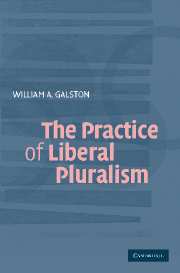1 - Introduction
Published online by Cambridge University Press: 18 December 2009
Summary
We often use the phrase “liberal democracy,” but we don't always think about it very carefully. The noun points to a particular structure of politics in which decisions are made, directly or indirectly, by the people as a whole, and more broadly, to an understanding of politics in which all legitimate power flows from the people. The adjective points to a particular understanding of the scope of politics, in which the domain of legitimate political decision-making is seen as inherently limited. Liberal governance acknowledges that important spheres of human life are wholly or partly outside the purview of political power. As such, it stands as a barrier against all forms of total power, including the power of democratic majorities.
The question then arises as to how are we to understand the nature and extent of limits on government. The signers of the Declaration of Independence appealed to the self-evidence of certain truths, among them the concept of individuals as bearers of rights that both orient and restrict governmental power. Today, individual rights represent an important (some would say dominant) part of our moral vocabulary. The question is whether they are sufficient to explain and justify the full range of constraints we wish to impose on the exercise of public power – for example, the limits on government's right to intervene in the internal affairs of civil associations and faith-based institutions.
In a recent book, Liberal Pluralism, I argued that we must develop a more complex theory of the limits to government. In this endeavor, three key concepts are of special importance.
- Type
- Chapter
- Information
- The Practice of Liberal Pluralism , pp. 1 - 8Publisher: Cambridge University PressPrint publication year: 2004

